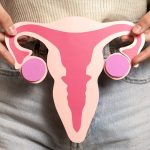Why should I include vitamin E in my diet?
Vitamin E is an antioxidant, which means that it can help protect cells in your body against damage caused by exposure to harmful substances such as cigarette smoke or radiation.
Vitamin E also helps keep your immune system healthy, promotes good eye health and maintains healthy skin. Vitamin E may also have a role to play in maintaining heart health.
Read more here about vitamin E and your health.
What are the best natural sources of vitamin E?
Vitamin E is found in fats and oils from animal products (meat, poultry, fish and diary foods), as well as vegetables, seeds and cereals. You only need a small amount of these fats and oils to get enough vitamin E in your diet. Women need an average of 7mg daily, and men need around 10mg daily.
The way you prepare your food affects how well vitamins are absorbed. Vitamin E is sensitive to heat, so it is best to eat fresh, raw vitamin E-rich foods when you can.
Here is a guide to some plant-based foods that are rich in Vitamin E:
| Vitamin E rich food | How much Vitamin E? | How do I use it? |
| Wheat germ oil | 20mg per tablespoon | Can be used as a cooking oil but high temperatures will reduce its vitamin content. |
| Safflower oil | 5mg per tablespoon | Use this as a salad dressing. |
| Sunflower seeds | 7mg per 22g seeds | Add seeds to your smoothie, cereal, or salad. |
| Almonds | 7mg per 22 nuts | Eat these as a snack or add to a salad. |
| Peanuts, peanut butter | 5mg per 100g nuts | Use plain, dry-roasted peanuts rather than options with extra salt or sugar. |
| Pumpkin/butternut squash | 1.3mg per 100g | Can be baked or roasted and eaten as a side dish. |
| Red capsicum (‘bell pepper’) | 2mg per 1 medium raw capsicum | Use fresh in salad or sauté as a side vegetable, but cooking reduces the vitamin content. |
| Beet greens and spinach | 1.8-2mg per 100g | The leafy stalks of the beetroot can be eaten raw in salad or sautéed in oil as a side dish. |
What if I’m on a restrictive diet?
The best way to give your body the vitamins it needs is to eat a varied diet. If you are on a vegan or vegetarian diet there are many non-animal sources of vitamin E that may suit you, including foods in the table above.
If you are concerned that you are not getting enough vitamin E, try adding a nut butter dressing to your salad, or having a handful of almonds as a snack.
If you are on another diet that restricts the range of foods you eat, speak to a dietitian about what foods would be best suited to your needs, and check if you need to take a supplement to avoid vitamin E deficiency.
What is a balanced diet?
To achieve and maintain a balanced diet, try to be aware of the foods and drinks you consume, and include a variety of nutritious foods from all 5 food groups every day. The 5 food groups are:
- Vegetables — at least 5 serves daily.
- Fruit — 2 serves daily.
- Lean meats and poultry, fish, eggs, tofu, nuts and seeds and legumes/beans — 1 to 3 serves a day, depending on your age (and during pregnancy, 3-4 serves a day are recommended).
- Milk, yoghurt, cheese and/or alternatives, mostly reduced fat — 2 serves daily — at least 2-3 serves daily, with the minimum amount varying based on your age, gender and life stage.
- Grain (cereal) foods, mostly wholegrain and/or high cereal fibre varieties — the number of daily serves of wholegrain cereals you need varies based on your age and life stage, ranging from 4 serves daily for children, to 6 serves daily for adult men under 70 years and adult women under 50 years of age.
Aim to limit takeaway foods such as pizza and fried foods to once weekly or less, and choose water rather than sugary drinks. Limit sweet foods like cakes and muffins as well as salty, processed foods like salami and chips.
Drink no more than 2 standard alcoholic drinks on any one day. For pregnant and breastfeeding women, the safest option is to not drink any alcohol.


